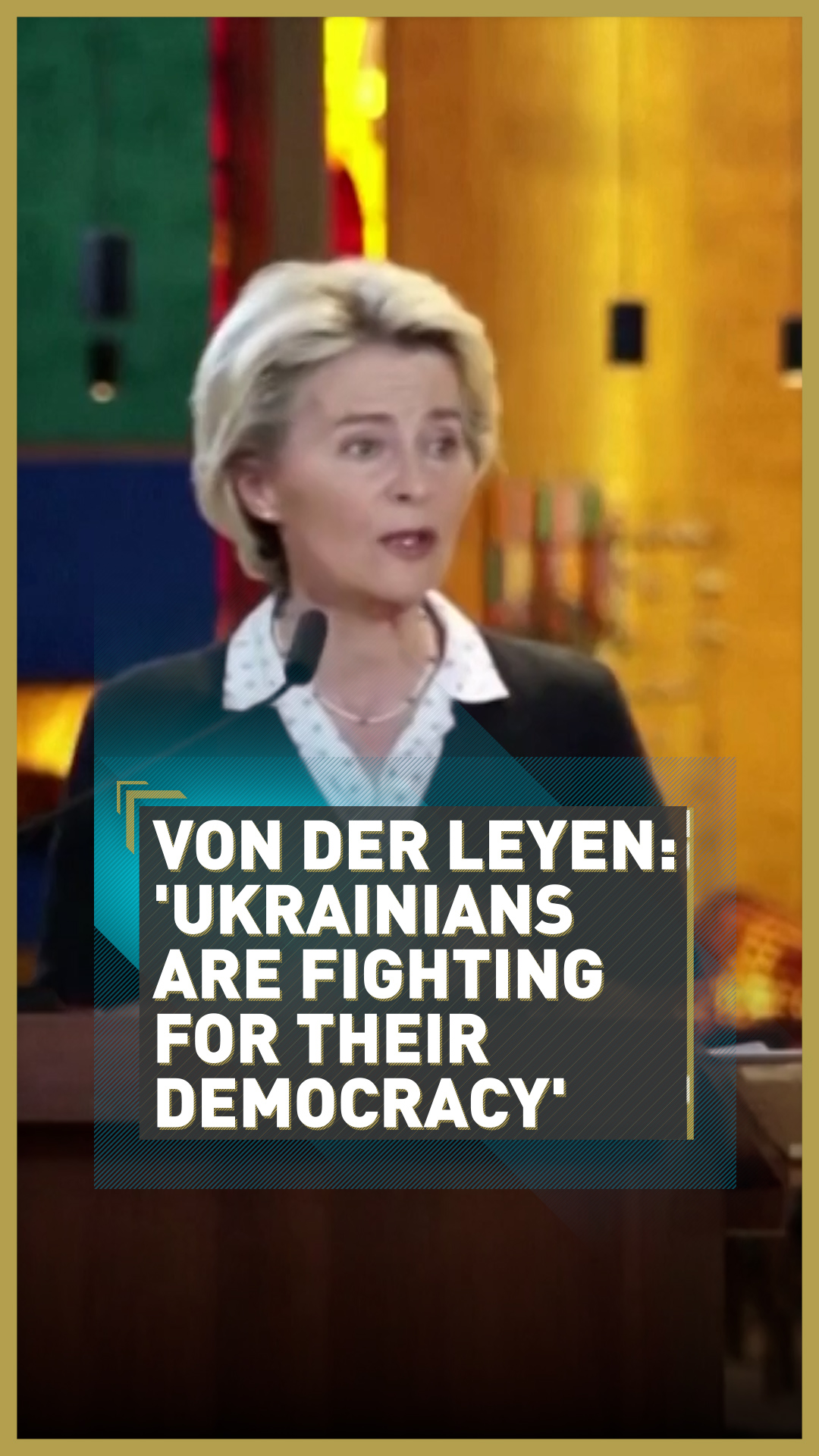
The infrastructure of the Zaporizhzhia nuclear plant has been damaged by shelling, said its Ukraine operator Energoatom. Ed Jones / AFP
The infrastructure of the Zaporizhzhia nuclear plant has been damaged by shelling, said its Ukraine operator Energoatom. Ed Jones / AFP
TOP HEADLINES
• Russian troops have "repeatedly shelled" the Zaporizhzhia nuclear plant, said its Ukraine operator Energoatom. "As a result of periodic shelling, the infrastructure of the station has been damaged, there are risks of hydrogen leakage and sputtering of radioactive substances, and the fire hazard is high," it warned.
• Russia's defense ministry has accused Ukrainian forces of shelling the Zaporizhzhia complex three times in 24 hours. It said four shells hit the roof of a building storing "168 assemblies of U.S. Westinghouse nuclear fuel."
• European Commission President Ursula von der Leyen has said "evil will not have the last word" in the conflict in Ukraine. She added:"If Russia stops fighting, there will be no war in Ukraine, but if Ukraine stops fighting, there will be no more Ukraine."
• Russian President Vladimir Putin has signed a decree introducing financial benefits for people who left Ukrainian territory to come to Russia, including pensioners, pregnant women and disabled people.
• The UK's defense ministry has said it is not yet clear how Russia would achieve an announced large increase in its armed forces, but the boost was unlikely to substantially increase its combat power in Ukraine.
• Ivan Fedorov, the Ukrainian mayor of occupied Melitopol, has said that government forces shelled Russian military bases in the city on Saturday night. "According to preliminary information ... one of the largest military bases that was located ... in the city of Melitopol was also damaged and partially demilitarized."
• Six ships laden with food have left the Ukrainian port of Odesa, the spokesman for the regional administration, Serhiy Bratchuk, said on Telegram.
• Millions of tons of food from previous harvests in Ukraine still must be cleared to make room in silos for the next one, the UN coordinator for a key grains export deal said.
• Germany may nationalise the energy business abandoned by Russia's Gazprom in April. The government has set up a holding company to carry out a possible nationalization of Gazprom Germania, Welt am Sonntag reported.
• Dell Technologies, a vital supplier of servers in Russia, said it had ceased all operations in the country after closing its offices in mid-August, the latest Western firm to exit.
00:57

IN DETAIL
Risk of radioactive leak from shelling at Zaporizhzhia nuclear power plant, says operator
Ukraine and Russia traded fresh accusations of shelling at the Zaporizhzhia nuclear power plant on Saturday, as its operator warned of the risk of a radioactive leak.
The Zaporizhzhia plant in southern Ukraine has been occupied by Russian troops since early March.
Kyiv and Moscow have repeatedly accused each other of rocket attacks in the vicinity of the plant - Europe's largest - located in the city of Energodar.
Its Ukraine operator Energoatom said Russian troops had "repeatedly shelled" it over the past day.
"As a result of periodic shelling, the infrastructure of the station has been damaged, there are risks of hydrogen leakage and sputtering of radioactive substances, and the fire hazard is high," Energoatom said on Telegram.
The agency said that the plant "operates with the risk of violating radiation and fire safety standards."
Russia's defense ministry however said Ukrainian forces had "shelled the territory of the station three times" from the town of Marganets across the Dnipro River.
The ministry accused Kyiv of "nuclear terrorism" and said shells had landed near areas storing fresh nuclear fuel and radioactive waste.
Radiation levels at the plant "remain normal" said the ministry statement.
On Tuesday residents in Khortytskyi district, 29 miles north-east from the power plant, were given iodine pills to reduce radiation risk in case of a leak.
Residents closer to the plant told AFP earlier this month that they had received iodine pills at the very start of the war.

A woman walks down a heavily shelled street in Mariupol. AFP
A woman walks down a heavily shelled street in Mariupol. AFP
Source(s): Reuters
,AFP

